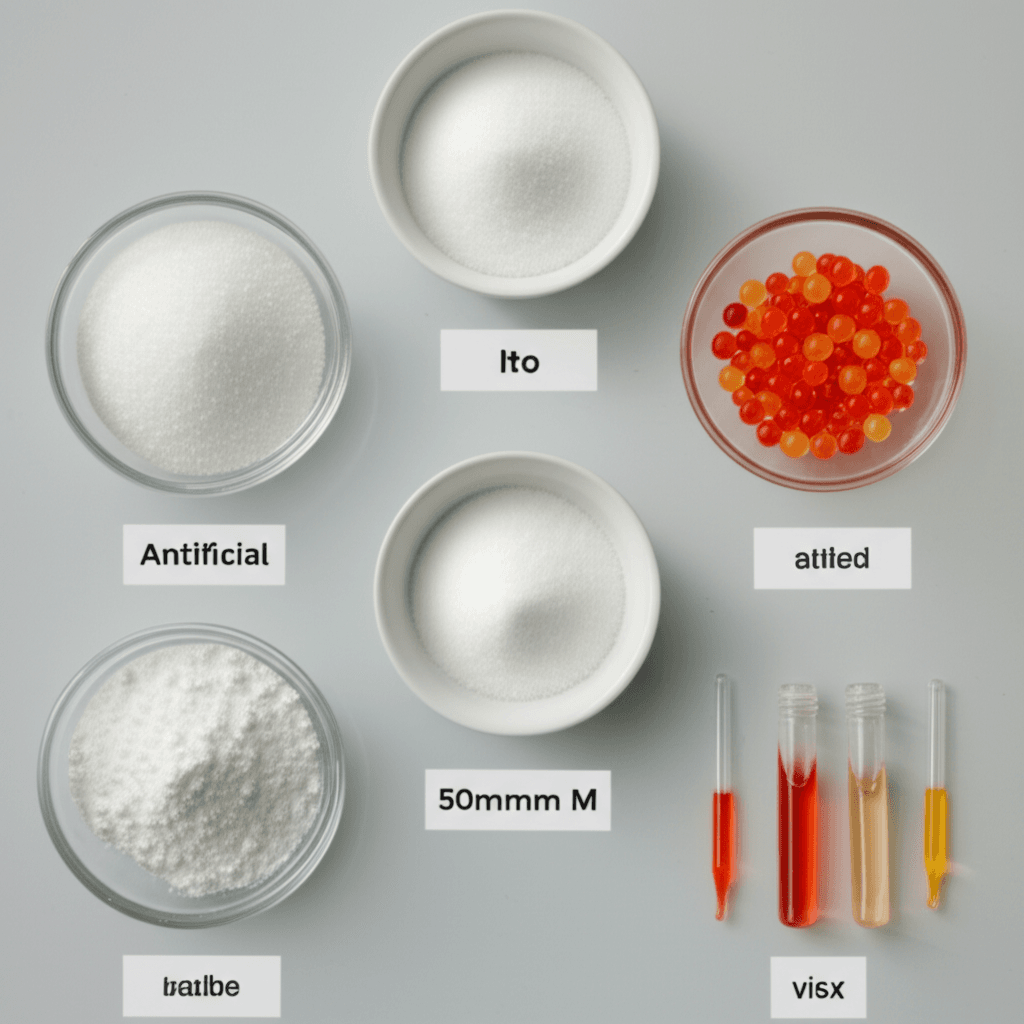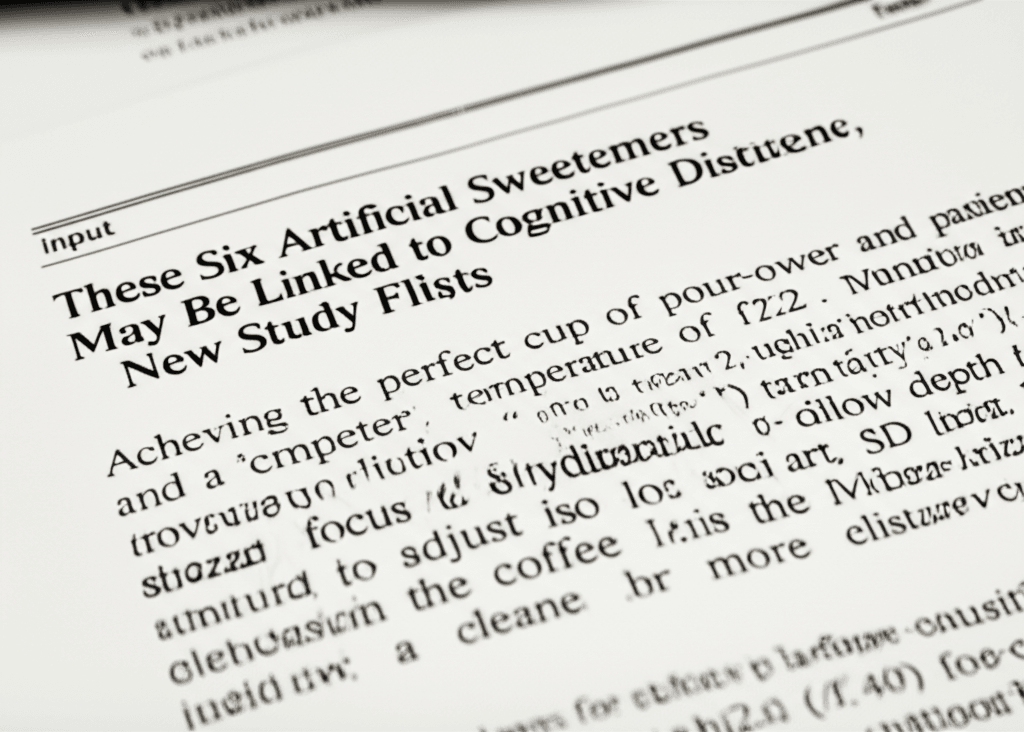A recent study published in the journal Neurology indicates that high consumption of several common artificial sweeteners may accelerate cognitive decline, particularly in middle-aged adults. The research, which tracked over 12,700 individuals for approximately eight years, found that participants with the highest intake of these sugar substitutes experienced a significantly faster decline in thinking and memory skills.
The findings suggest a potential “long-term harm” on cognitive function from using certain low- and no-calorie sweeteners (LNCs) and sugar alcohols.

The Study: Tracking Sweetener Intake and Cognitive Health
The longitudinal study, led by researchers including Dr. Claudia Kimie Suemoto from the University of São Paulo in Brazil, analyzed data from 12,772 civil servants in Brazil, with an average age of 52. Participants provided dietary information over the course of a year at the study’s onset and underwent cognitive tests at the beginning, middle, and end of the eight-year follow-up period to assess changes in memory, language, and overall thinking skills.
Researchers categorized participants into three groups based on their artificial sweetener consumption. The group with the highest intake—averaging 191 milligrams per day, comparable to the amount in a can of diet soda—showed a 62% faster decline in cognitive function compared to those with the lowest intake (average of 20 mg/day). This accelerated decline was equivalent to about 1.6 years of brain aging. The middle consumption group also experienced a decline that was 35% faster, equivalent to roughly 1.3 years of aging.

Six Sweeteners Linked to Accelerated Cognitive Decline
The study specifically examined seven low- and no-calorie sweeteners commonly found in diet beverages, flavored waters, yogurts, and low-calorie desserts. Of these, six were associated with faster drops in global cognition, particularly affecting memory and verbal fluency.
The sweeteners identified are:
- Aspartame
- Saccharin
- Acesulfame-K (Acesulfame Potassium)
- Erythritol
- Sorbitol
- Xylitol
Notably, tagatose, another sweetener assessed in the study, was not linked to cognitive decline.
Specific Vulnerabilities: Diabetes and Midlife Adults
The research highlighted that the link between artificial sweetener consumption and cognitive decline was particularly pronounced in certain groups. People with diabetes, who often use artificial sweeteners as sugar substitutes, exhibited a faster rate of memory and cognition decline. Additionally, the association was more evident in adults under 60, suggesting that midlife exposure to these sweeteners might be especially detrimental to brain health, a critical period for establishing the trajectory of cognitive function.

Potential Mechanisms Behind the Link
While the study establishes an association and not a direct cause-and-effect relationship, researchers and experts are exploring several hypotheses for how artificial sweeteners might impact brain health.
Neuro-inflammation and Gut-Brain Axis Disruption
One leading theory suggests that artificial sweeteners may trigger processes such as neuro-inflammation and neuro-degeneration. Some sweeteners, like aspartame, have been linked to inflammation in the brain. Sugar alcohols, such as erythritol and sorbitol, may alter the gut microbiota and compromise the blood-brain barrier, potentially disrupting the critical gut-brain axis. This disruption could contribute to worsened neurocognitive issues.
Altered Glucose Metabolism
Artificial sweeteners may also affect the body’s ability to metabolize glucose. For instance, aspartame and acesulfame-K could impact glucose metabolism and the gut microbiota, potentially worsening metabolic control. Neurologists suggest that the brain, which primarily burns glucose for fuel, might be “tricked” by artificial sugars, potentially leading to an impact on cognition over time.

Expert Perspectives and Future Research
Dr. Suemoto emphasized that while these findings suggest potential long-term harm, more research is needed to confirm the results and investigate if other sugar alternatives, like applesauce, honey, or maple syrup, could be effective alternatives. The study’s observational nature means it does not prove that artificial sweeteners cause cognitive decline.
Thomas Holland, MD, MS, of Rush Medical College, commented in an accompanying editorial that the study “builds on mounting evidence that common dietary exposures, particularly ultraprocessed food additives, once considered benign, may influence brain health in ways neurologists and other healthcare professionals are only beginning to understand.”
The International Sweeteners Association (ISA), however, maintains that there is an “established scientific consensus” that sweeteners are safe, highlighting that observational studies can only show statistical association, not direct cause-and-effect.
This new research underscores the importance of continued investigation into the long-term effects of artificial sweeteners on brain health and encourages consumers to consider their overall dietary choices.







